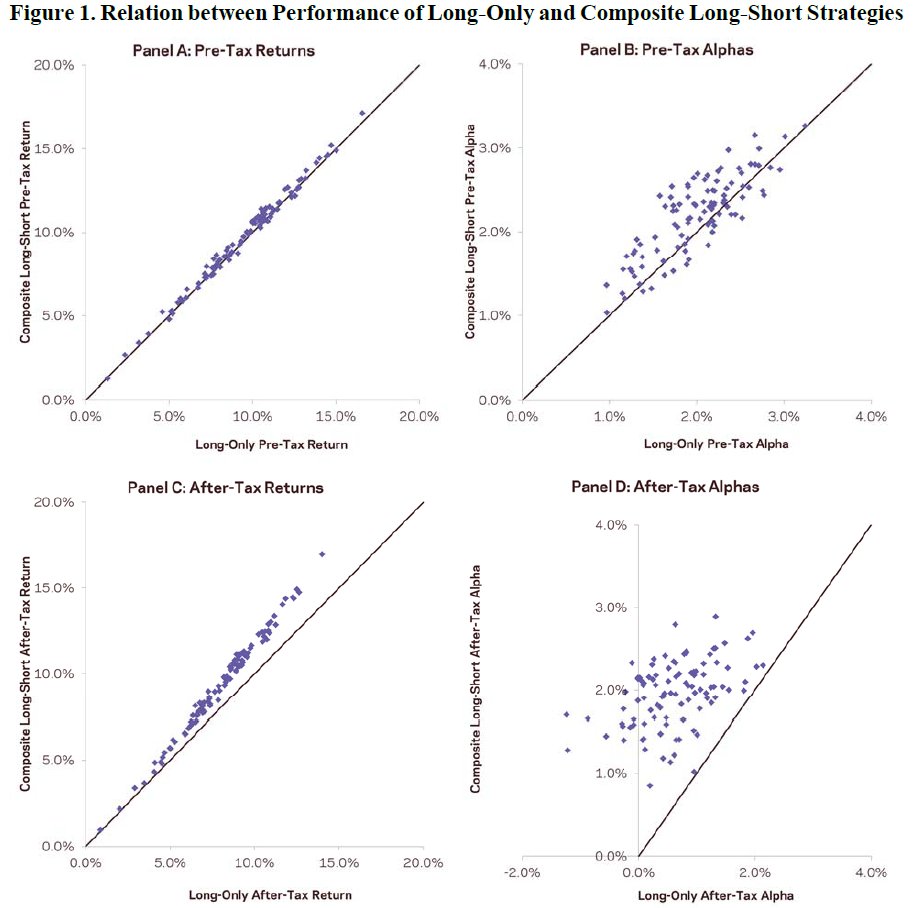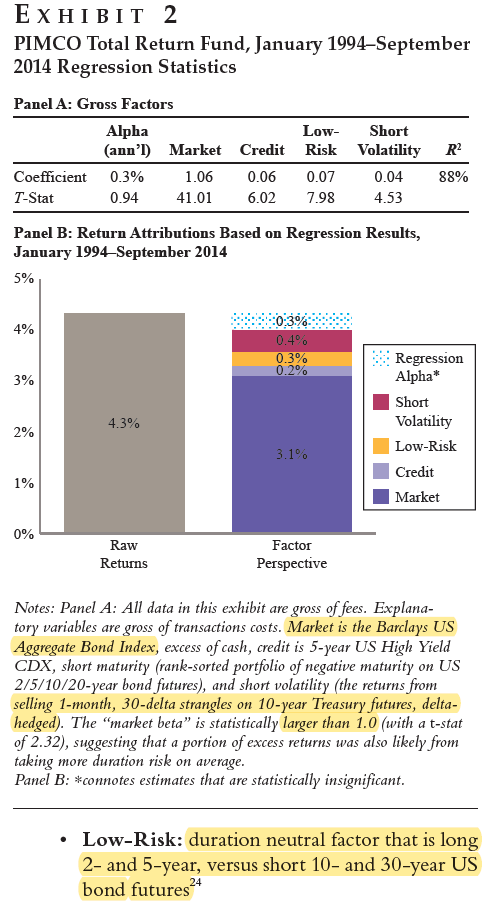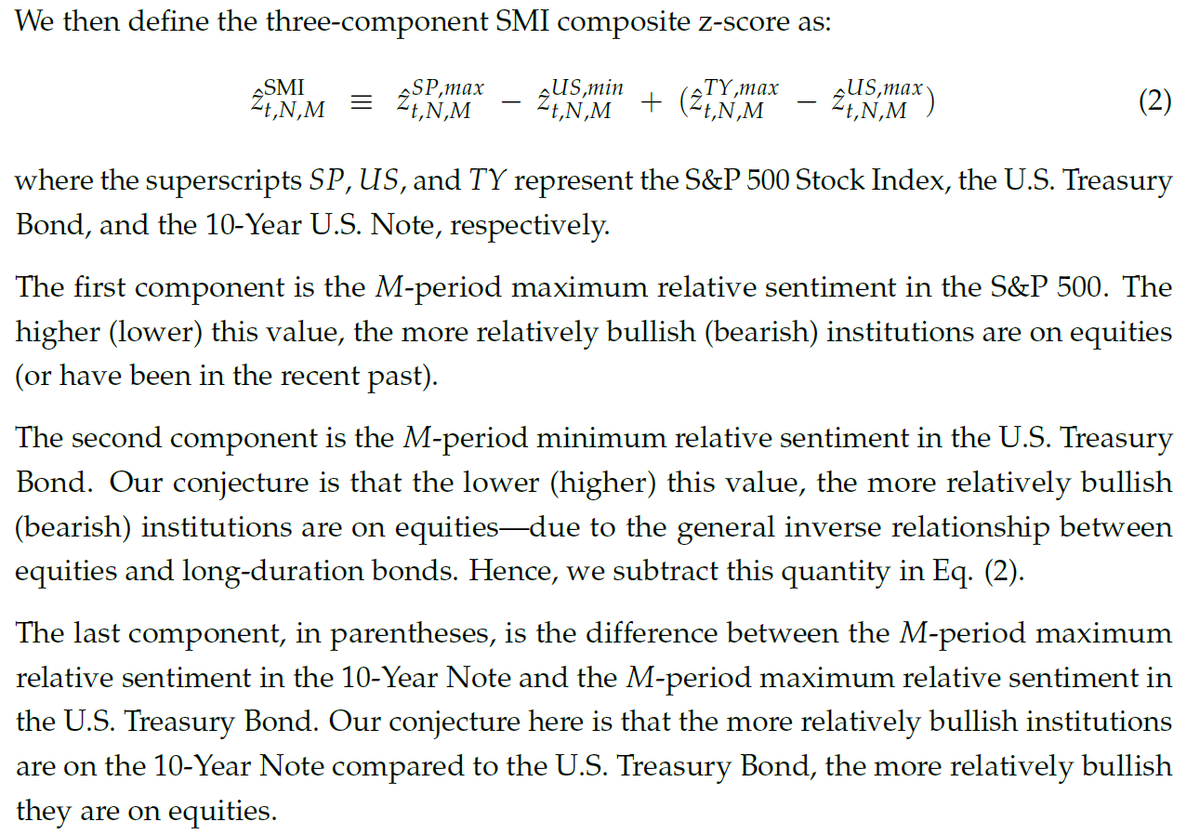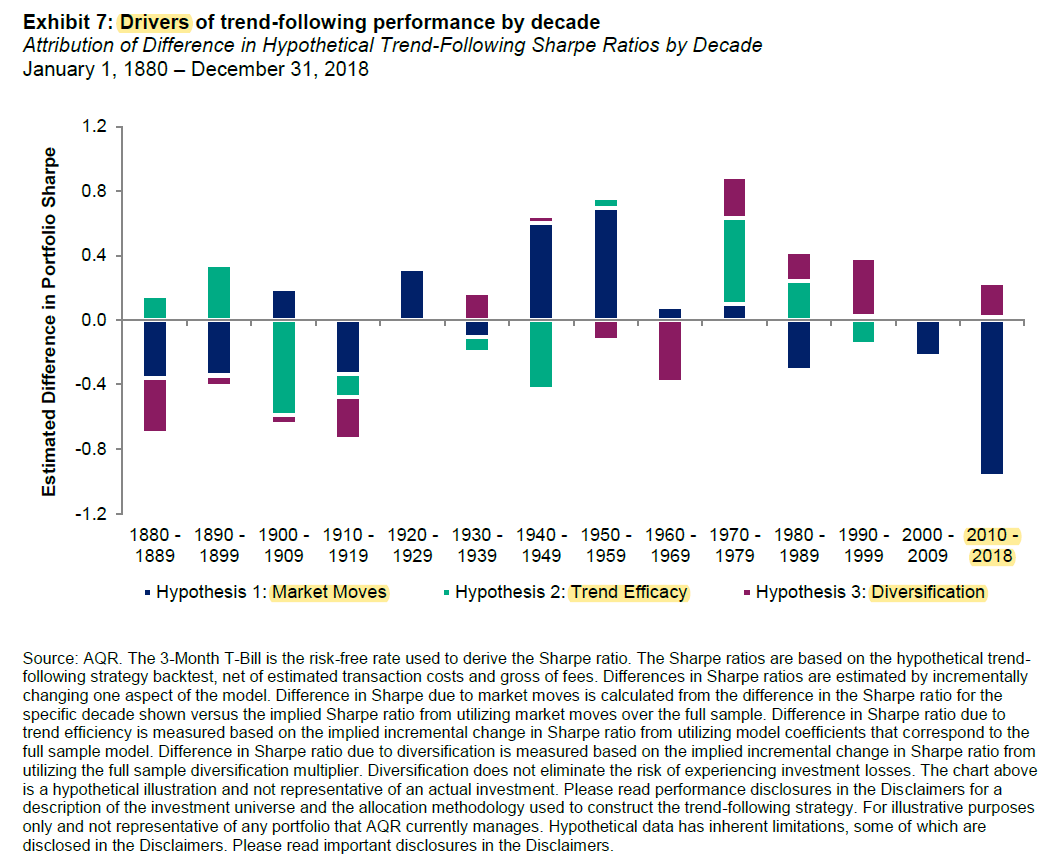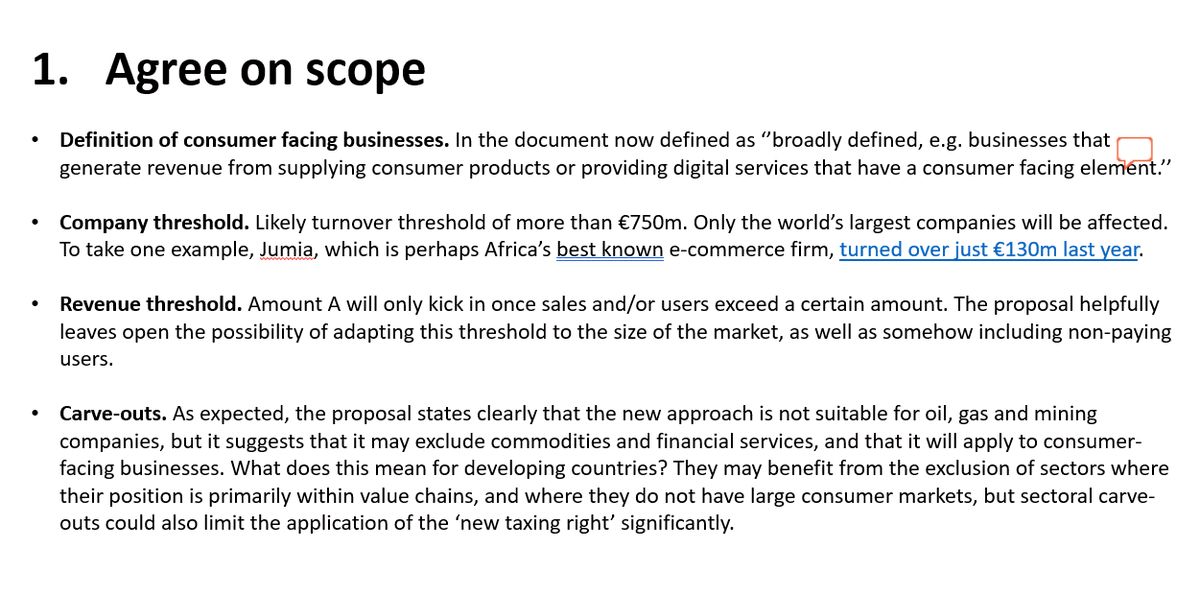"The turnover of a strategy that separates α from β is concentrated on the long-short component and enables the deferral of capital gains on the passive market component."
papers.ssrn.com/sol3/papers.cf…
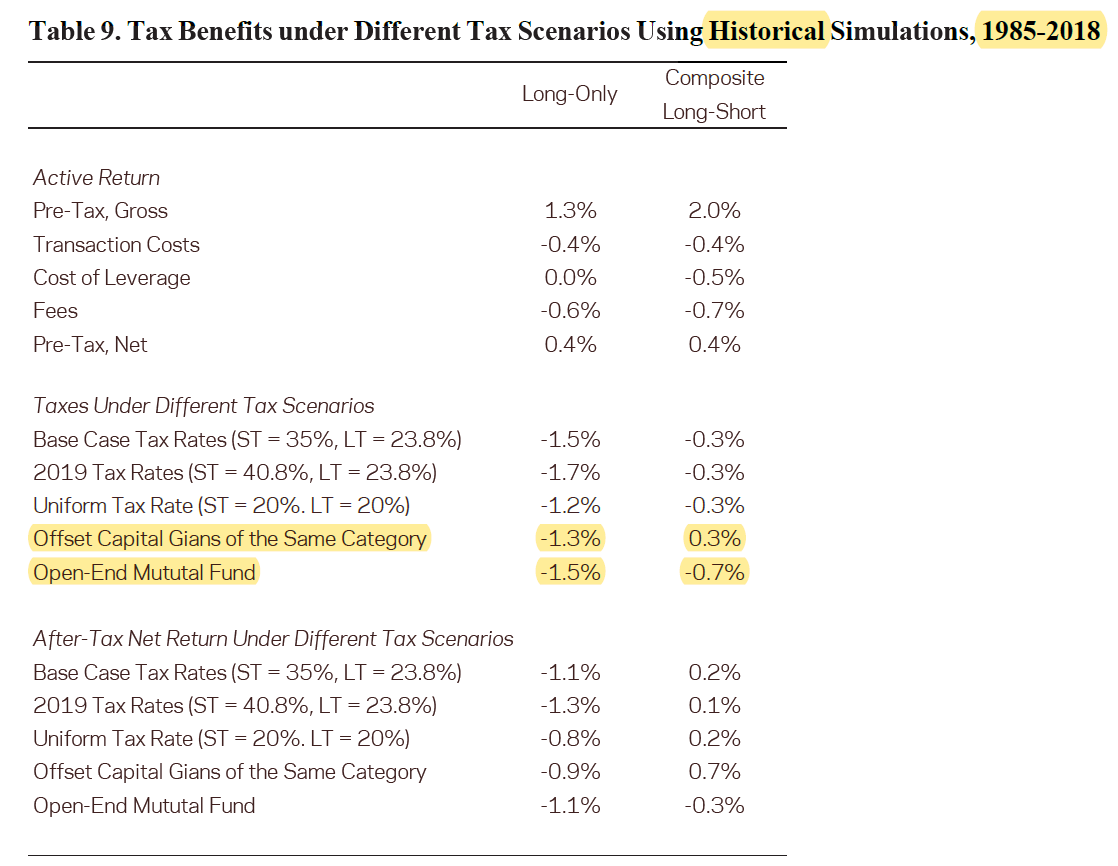
Two of the authors find similar results in an earlier paper:
+0.3% tax benefit (tax-agnostic)
+6.1% tax benefit (tax aware)




